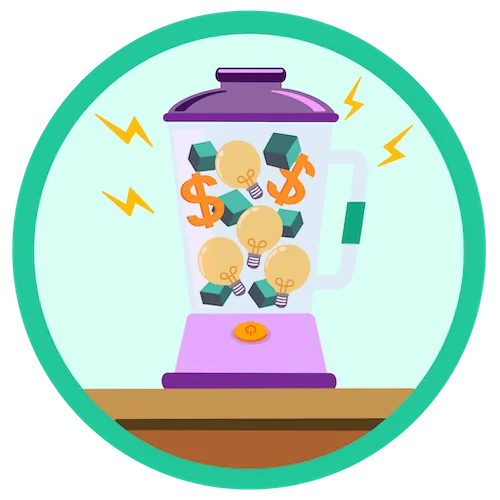
Module 18
Buying Your First Home
This module helps students discover the fundamental role of real estate in the economy and explore its significance in the housing market.
We provide insights in the basics of real estate, its impact on the economy, and the key aspects of residential real estate to help equip students with the knowledge required for a path towards home ownership.
Module At A Glance
Grade Levels:
7th - 12th
Est. Length:
2-3 Hours (24 slides)
Activities:
3 Activites
Articles:
6 Articles
Languages:
English & Spanish
Curriculum Fit:
Math, Business, Economics, CTE, Social Studies
Standards Alignment:
CEE National Standards, Jump$tart National Standards & Relevant State Standards

Guiding Questions
- What is real estate and what does it encompass?
- How does real estate contribute to economic growth?
- Why is real estate considered a crucial component of the economy?
- What are the key steps involved in the residential real estate buying process?
- How do the characteristics of residential real estate differ from commercial real estate?
Enduring Understandings
- Real estate is an essential asset class and serves as one of the bedrocks of our economy because everyone needs a place to live.
- Although demand for real-estate is high, making money is tricky and not easy.
- The relationship between supply, demand and market dynamics in determining property prices.
- Understanding real estate can provide financial security and for long-term wealth.
Module Vocab & Key Topics
Real Estate
Refers to land, properties, and assets, including buildings and natural resources, that have tangible value and can be bought, sold, or leased for various purposes
Real Estate Agent
Licensed professional representing buyers or sellers in transactions.
Mortgage
A loan used to finance property purchases, with the property acting as collateral to ensure that the loan is repaid.
Amortization
Gradual repayment of both principal and interest associated with debt, such as a mortgage, through regular, equal installments.
Appraisal
Property value assessment by a licensed professional to determine its market worth for sale, purchase, or loan purposes.
Home Equity
Caculated as the difference between a property's market value and the outstanding mortgage balance, which represents the ownership stake unencumbered by debt.
Title
Legal ownership of a property, evidenced by a deed or title certificate.
Down Payment
Initial payment made by the buyer towards the property's purchase price.
Lease
Rental agreement between landlord and tenant.
Deed
Legal document transferring property ownership from seller to buyer.
Condo
Individual ownership within a shared property complex, with common areas and amenities.
Closing
Final stage of real estate transaction where ownership transfers, and funds and documents exchange.
Homeowners Association (HOA)
Governing body managing common areas and enforcing rules in a community, typically charging a monthly fee to homeowners in the community.
Escrow
Neutral third-party holding funds and documents during real estate transactions until all conditions are met.
Multiple Listing Service (MLS)
Databases used by real estate agents to list and access different properties for sale. Popular listing services include Zillow, Realtor and Trulia.
Capitalization Rate
A rate which helps estimate an investment property's value and potential return by providing a rough estimate between the prices of rents and the cost of homes.
Foreclosure
The process where the lender takes possession of a piece of property due to a borrower's failure to continue paying their mortgage, which causes the borrower to enter default.
Comparative Market Analysis (CMA)
A process whereby an individual can evaluate a property's value based on recent sales of similar properties in the same community.
Assigned Value
The value assigned to a property by a tax assessor, sent by the government, to determine the value of a piece of property for taxation purposes.
Buyer's Market
This references conditions favoring real estate buyers due to high inventory and low demand. Low interest rates typically favor borrowers who require debt to make purchases.
Seller's Market
This references conditions which favor real estate sellers due to low inventory and high demand. High interst rates can benefit sellers, however, it reduces demand because fewer potential buyers can afford loans.










